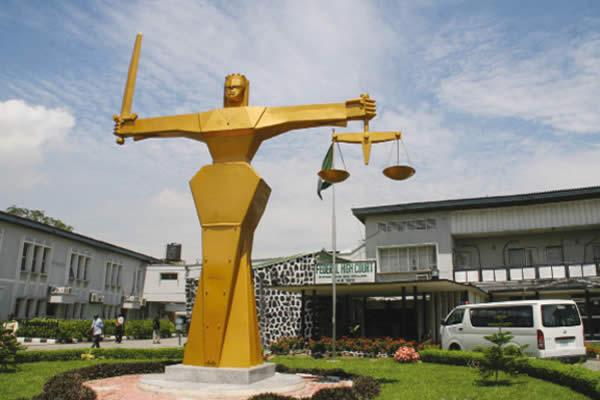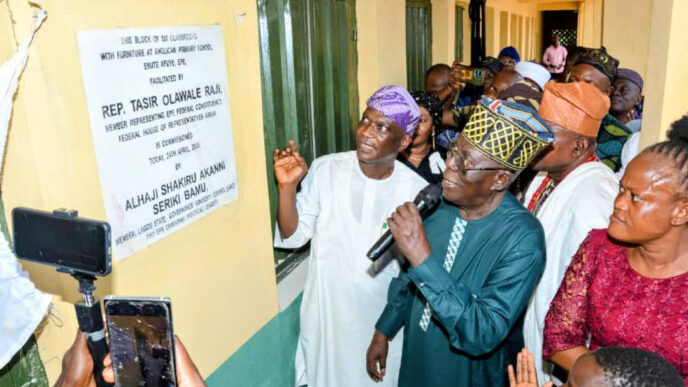A Federal High Court sitting in Lagos has convicted and sentenced seven Chinese nationals to one year imprisonment each for their involvement in cyberterrorism and internet fraud linked to a large-scale Ponzi scheme uncovered by the Economic and Financial Crimes Commission (EFCC) in December 2024.
EpeInsights gathered that the convicted individuals — Peng Li Huan, Zhang Jin Rong, He Kun, Rachelle Cabalona, Caselyn Pionela, Guo Long Long, and Zhang Hua Zhai, were arrested during a sweeping EFCC operation at a building on Oyin Jolayemi Street, Victoria Island, Lagos, where over 700 suspects were taken into custody.
The convicts were arraigned separately before Justices Ayokunle Faji, Chukwujekwu Aneke and Yellim Bogoro of the Federal High Court.
According to EFCC’s Lagos Zonal Directorate 1, the defendants were charged with one-count offences bordering on cyberterrorism and internet fraud.
Prosecuting counsels, Bilkisu Buhari-Bala, Chineye Okezie and Banjo Temitope told the courts that the defendants had entered plea bargain agreements, which were formally filed on June 20, 2025.
All seven defendants pleaded guilty and confirmed that their pleas were entered voluntarily.
Based on the plea bargains, the courts sentenced each of them to one year imprisonment with an option of ₦1 million fine.
In addition, the courts directed the Comptroller-General of the Nigerian Immigration Service (NIS) to ensure that the convicts are deported to their respective countries within seven days of completing their prison terms.
The amended charge read in court stated that the convicts, in December 2024, “willfully accessed computer systems organized to destabilize and destroy the fundamental economic and social structure of Nigeria by recruiting Nigerian youths to commit identity theft and impersonate foreign nationals for financial gain.”
Their actions contravened Section 18 of the Cybercrimes (Prohibition, Prevention, etc.) Act, 2015 (as amended in 2024) and Section 2(3)(d) of the Terrorism (Prevention and Prohibition) Act, 2022.
The EFCC described the successful prosecution as a major breakthrough in its ongoing fight against cross-border cybercrime and economic sabotage.











